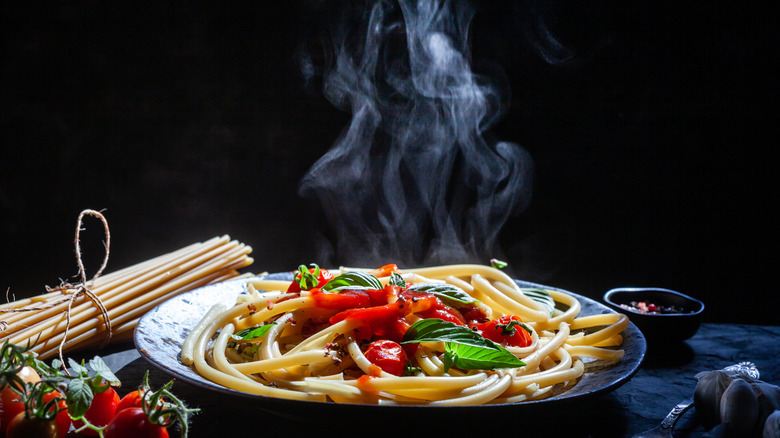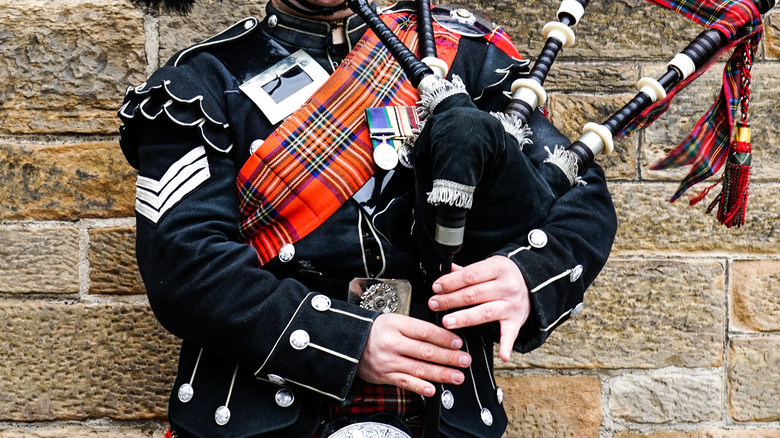The Ancient History Behind Why We Call Food 'Piping Hot'
Nothing makes our mouths start to water quite like the image of a steaming hot plate of food. Whether it's been carefully extracted from an oven or expertly flipped off of a sizzling grill, you want your dinner served with the smoke still rising. It doesn't need to cool off — you can just blow on it! (But you'll probably end up burning your mouth anyway.)
There are a number of words that have come to be associated with hot food. However, a few terms, like red-hot or scorching, draw to mind foods that are spicy, and not necessarily hot, temperature-wise. Saying that a dish is scalding makes you think of burning your tongue, which is inherently unappetizing. On the other hand, calling a plate of food 'piping hot' immediately causes you to conjure images of a steamy supper, and the phrase has been perfectly describing dinners for hundreds of years.
The origins of the expression piping hot
People have been serving up their food 'piping hot' for Archaeologists have discovered that early humans first cooked fish nearly 800,000 years ago, via CNN. However, it would be a while before the phrase was invented.
According to Mental Floss, the first print appearance of 'piping hot' came in Geoffrey Chaucer's 1390 novel "The Miller's Tale." He wrote, "Her sent her sweetened wine, mead, and spiced ale. And waffles, piping hot out of the fire." While sweet wine, spiced ale, and steamy, syrupy waffles certainly sound like a dream breakfast, attributing the phrase to Chaucer wouldn't be entirely correct.
The Village Voice tells us that the term 'piping hot,' though it did emerge in Chaucer's era, was actually a colloquial phrase inspired by the steam that billows from the spout of a teapot, a tool that has existed in some form since early human history. The whistling noise that signifies your water has come to a boil is comparable to the sound of musical pipes, via Mental Floss.
More thoughts on piping hots' etymology
A teapot's signature steam spigot might be the best explanation for the origins of the phrase 'piping hot,' but it's not the only theory that has been pitched. Some folks have speculated that the name actually came from Scotland, where certain occasions call for lavish meals set against a backdrop of bagpipe music, per Mental Floss. The Hindustan Times suggests that this may also explain the origins of the phrase 'piping in,' which refers to the practice of broadcasting music or sound.
Mental Floss also suggests that the phrase could be linked to maritime custom. According to the official Boatswains Call Handbook, a boatswain will often need to use their signature whistle, or boatswain's call, to assemble the ship's seamen together for meals, via Dundas Sea Cadets.
If the image of steaming teapots has given you a hankering for a warm beverage, you can try your hand at making one of these piping-hot cocktails.


